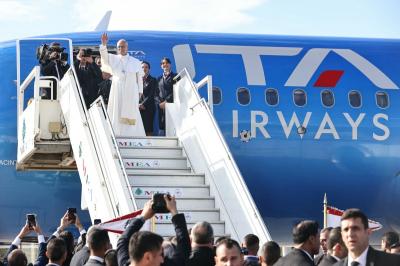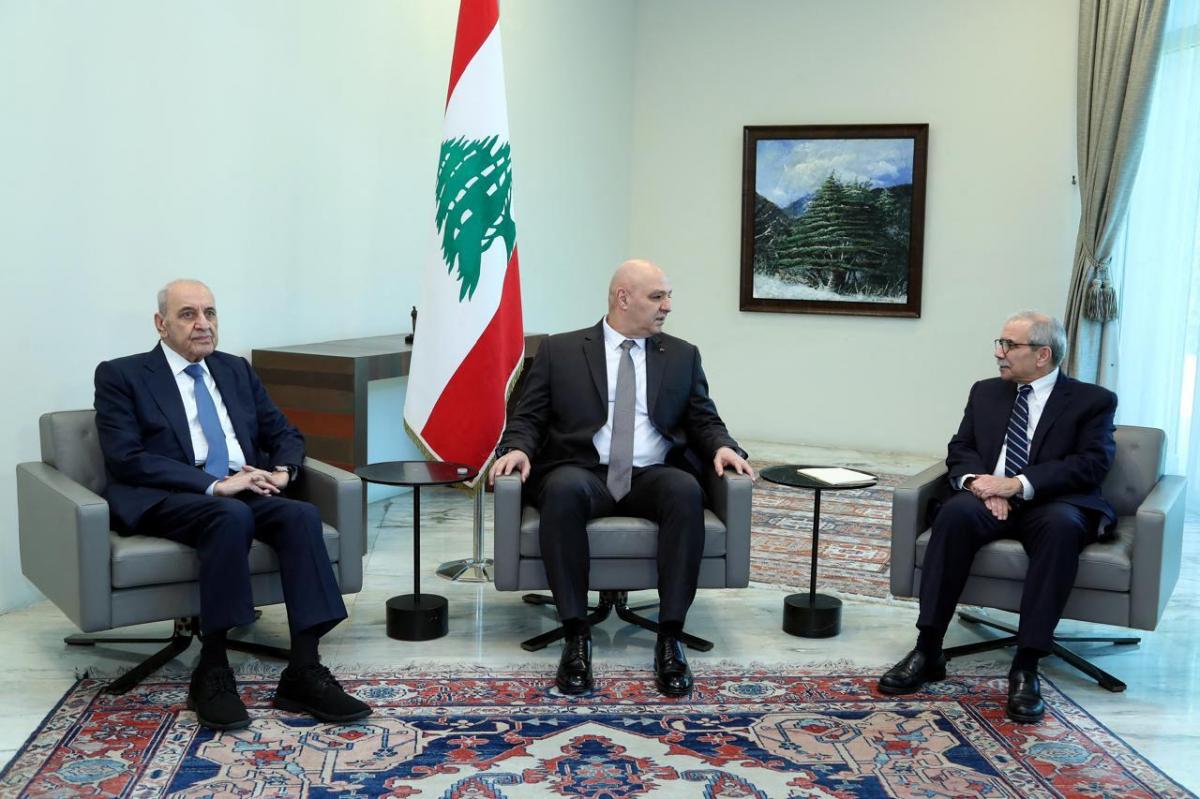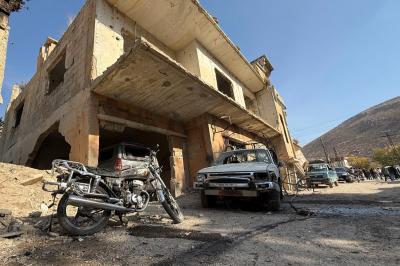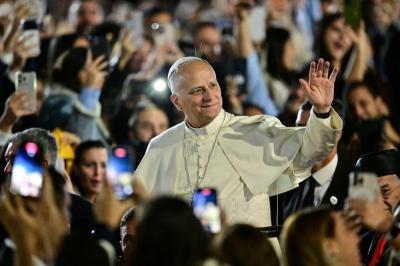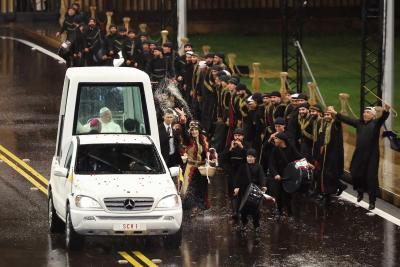No one can ignore the feverish “sprint” in the final hundred meters of the race to dismantle “Hezbollah’s” arsenal and other illegal weapons. This race pits the “paper” presented by U.S. envoy Thomas Barrack against the “response” of Lebanon’s three-headed leadership, who, in turn, are tying their reply to "Hezbollah"’s approval, or at least a “paraph” it would add to the decision.
It is a constitutional and sovereign paradox—if not an outright travesty—that the decision of a legitimate state should await the consent of an armed, illegitimate group before it can be announced and conveyed to the American mediator. Yet this decision inevitably lies between two options: either accepting a phased disarmament to be launched in parallel with Israeli measures (cessation of airstrikes, gradual withdrawal, resolution of the detainees issue), or rejecting this simultaneity and flipping the priorities, thereby submitting the state to "Hezbollah"’s four preconditions before any surrender of its weapons or discussion of a defense strategy—namely, halting Israeli attacks, ensuring withdrawal, releasing prisoners, and starting reconstruction.
The problem is that the state cannot afford to wait or play for time as "Hezbollah" does, tethering its weapons to Iranian timing and betting on a shift in the balance of power—one that collapsed following the recent “support war” here and the “12-day war” there—or even on divine intervention, as hinted by "Hezbollah"’s deputy chief Sheikh Naim Qassem, echoing those who once placed their weapons under the guardianship of the “Hidden Imam.”
Thus, reconciling a faction that abides by constitutional laws, agreements, and international conventions with another that believes in supernatural forces and support from beyond time and nature has become an exercise in futility.
Clearly, "Hezbollah"’s chief negotiator, Speaker Nabih Berri, is stuck between reality and the metaphysical. On one hand, he is bound by his signature on written commitments to “end hostilities,” including disarmament across Lebanese territory; on the other, he is squeezed by his “non-identical twin” faction’s refusal to accept this reality. He oscillates between seeking refuge in the “committee of the three presidents,” lost in marathon meetings to draft a response, and distracting public opinion or bogging down political forces in battles, such as excluding the diaspora’s electoral voice.
Between isolating half of Lebanon’s diaspora from its resident half and stalling the disarmament that has dragged the country into ruin, the national sovereign decision risks being lost in both mazes, as the leaders circle endlessly like dervishes around it.
This dizzying spin has reached its final moments before the collapse of those spinning, as a pressing deadline looms with the return of U.S. envoy Barrack next week. The ruling trio must answer his paper, and Prime Minister Nawaf Salam has hinted at a “positive” reply. But does this “positivity” signal alignment with the nine-point American agenda—which spans "Hezbollah"’s disarmament, reforms, and Lebanon’s ties with the new Syria—or is it a ploy to reshuffle these priorities in favor of the party wielding the weapons? Word games and rhetorical juggling fell flat with the ministerial statement and the inaugural speech; they cannot be revived in the expected response to Barrack’s plan without bringing down those who offer the reply themselves.
Some, driven by “non-artificial” cleverness, have gone so far as to argue there’s no need for a response to the American paper, citing clear passages in the ministerial statement and inaugural address that confine weapons to the state’s authority—as if texts alone could substitute for action and absolve the authors.
When Western and Arab envoys poured advice upon Lebanon to seize this last international and regional chance, it was not to intimidate state leaders but to remind them that this window is not open-ended. Over the past six months, the international and Arab communities—through envoys, ambassadors, statements, and stances—have given Lebanon time but seen little serious progress on securing a state monopoly over arms or on bold structural reforms and rooting out the entrenched corrupt class, aside from timid, piecemeal measures.
Practically, the countdown has begun for Lebanon’s three leaders, who previously excelled at smoothing over their rifts and freezing their disputes to prioritize maintaining the “troika’s shared coexistence”—even at the cost of the national interest. Today, however, the priority is saving Lebanon, even if it comes at the expense of the “Duika” (the Amal-"Hezbollah" duo) or on the back of the troika’s internal disagreements. This salvation demands a courageous stance by one, two, or all three leaders together.
So who among them will step up boldly enough to etch their name in Lebanon’s diamond-studded historical record?
Please post your comments on:
comment@alsafanews.com
 Politics
Politics
